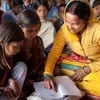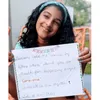How Dream a Dream has impacted the lives of 3 million children from vulnerable backgrounds
With a focus on life skills and changing mindsets towards learning, the organisation aims to reimagine the purpose of education.
In 1999, a group of 11 young professionals, all in their early 20s, decided to come together to spend weekends volunteering their time helping youth from vulnerable backgrounds. The genesis of the group – – happened after one of the co-founders, Vishal Talreja, returned to India from a trip to Finland.
Struck by the levels of dignity in labour and the high quality of life that people enjoyed there, regardless of the nature of their job, was something he dreamt of seeing in India’s more class-conscious society.
What began as a simple endeavour of conducting art classes and outings has since burgeoned into a massive effort that has impacted millions of children across five states – Delhi, Jharkhand, Karnataka, Telangana, and Uttarakhand.
Today, Dream a Dream conducts an After School Life Skills Programme and Career Connect Programme and works with 10,000 young people each year. The organisation has also trained over 9,828 teachers/educators from 206 partners.

Dream a Dream has been collaborating with several state governments to develop life skills programmes for students.
Speaking to SocialStory, Sucheta Bhat, CEO of Dream a Dream, says, “Right from the beginning, when we would take the children out on picnics or outings, we noticed a change in their confidence levels, build healthy relationships, and an increased ability to plan for the future. That is what inspired us to help them develop life skills that would encourage them to overcome the adversities that many of these children from vulnerable backgrounds face.”
With many of the children already facing issues like abuse, malnutrition, exposure to crime from an early age, education and life skills are not a priority in their homes. The numbers only highlight how deep an issue it is. Today, 3.22 crore children are out of school; nearly 33 percent of children do not complete schooling, and 54 percent of India’s youth are not job-ready.
Building life skills
Sucheta, who joined the organisation in 2010, has been the CEO since 2018, taking over from Vishal, who formalised the efforts of the group from being a volunteer-based organisation into a full-time formal life and job skill initiative.
“We started with just 3,000 children as part of an after-school programme in Bengaluru. Today, we have worked with over three million children through our various programmes.”
Dream a Dream works with both affordable private schools and with state governments. A key initiative was the Happiness Curriculum developed with the Delhi Government. This unique programme was conducted for students from Class 1 to 8 at Delhi Government schools and focussed on the mental well-being of pupils, teaching mindfulness, critical thinking and problem solving, as well as relationship building. The success of the programme led the governments of Andhra Pradesh and Uttarakhand to start similar programmes in their schools.
However, while implementing the programmes, Sucheta says they realised that there was a need to catalyse an even bigger change.
“While we were doing a direct intervention for children, we realised that the bigger challenge was really getting people to recognise the need for such a change. The initial pushback was that academic learning outcomes like numeracy and literacy were more important,” says Sucheta, adding that there has been a shift in the past year to building the ecosystem around the child. Dream a Dream is currently working with teachers, and training them to integrate the life skills approach into their classrooms.
“They could be a math teacher or a science teacher, but how do you integrate life skills so that children develop? How do we build their confidence and ability to interact, solve problems, and take initiative and how can teachers develop these skills in children?” she says.
A comprehensive approach
Sucheta believes the education system is currently in a transition phase. While life skills are still considered an ancillary or ‘after school’ programme, she says that there is a realisation that students’ needs have changed in the aftermath of the pandemic.
“Post-COVID-19, children are going to come back with more trauma, and there's going to be more anxiety. You can't really say ‘let’s memorise facts’. We have to take into account their mental, social, and emotional health. I think the National Education Policy has been a big push in this direction. With these new ways of assessment, I think we're going to move towards a much more 21st-century skills-based education.”
Speaking on education in a post-COVID world, she says that Dream a Dream’s approach has been a little different from the en masse online shift that many schools did.
“During the lockdown, schools were forced to shift their offline curriculum online as is. Our process is different. We asked ourselves what response we wanted to offer. So, in the last one-and-a-half years, we have been developing new content around reintegration,” says Sucheta, explaining that the new modules have been designed to help both students and teachers reintegrate after the pandemic.
“Going forward, we plan to offer how we can make teachers more trauma aware and how they can be more trauma-responsive. We want to help educators recognise behaviour changes when children come back to school and how to respond to that,” she says.

Dream a Dream has provided rations kits to over 14,900 families during the lockdown
Dream a Dream has helped over 15,000 young people during the pandemic. “A team of employees and youth volunteers was formed during the onset of COVID-19. In a matter of a week, a team with decades of life skills’ interventions, pivoted towards relief-related interventions,” she says. The team helped with timely support for healthcare emergencies to facilitating COVID testing, providing COVID care kits, oxygen cylinders, hospitalisation, and arranging teleconsultation with doctors. The team also provided ration kits to 14,900 families.
“I worked closely with all the COVID Relief teams during the pandemic. We had the learnings
from the first COVID-19 wave, so we were in a better position to understand the situation during
the second wave,” says Revanna Marilinga, a volunteer with Dream a Dream.
“We decided to focus on three categories - immediate support for ration kits and medical supplies, mid-level support for funds and devices, and long-term support for scholarships and placements. We went that extra mile even when members of our own families tested positive. I remember that time as life-changing because even in the face of tragedy, we found the strength to move on and find solutions.”
Another volunteer Priyanka says that volunteers stepped in to provide emotional and financial support to people impacted by the pandemic. “One incident that really impacted me was when a young woman reached out for help. Her husband had passed away, she had two young children and she couldn’t afford to pay her house rent. Dream a Dream stepped in and helped her financially and provided scholarships for her kids,” she says.
A lot of the volunteers with Dream a Dream are alumni of the programme. “The team here is relatively small with 100 people, and 35 percent of the staff across the board from the leadership to the facilitator level are alumni. Our organisation is deeply rooted in the alumni network, and we get to see that our programmes work and has created this network of changemakers.”
Funding and future
The majority of Dream a Dream’s funding comes from institutional donors. “Organisation Michael and Susan Dell Foundation and Omidyar Network are some of our big donors. We also get CSR funds from the foundations set up by corporates or from their 2 percent CSR fund. Other than that, we also have individuals who support us. We also run campaigns like the one we are running now to raise money for devices to give children from vulnerable backgrounds,” says Sucheta.
Dream a Dream has been talking about reimagining education for the longest time and has had success, especially in the last five to six years, by partnering with governments and other organisations. “The education system is outdated and we must ask ourselves how we are preparing young people to thrive. That has been our kind of war cry for many years now and this has only gotten clearer and louder for us that it is time to reimagine the purpose of education,” she says.
YourStory’s flagship startup-tech and leadership conference will return virtually for its 13th edition on October 25-30, 2021. Sign up for updates on TechSparks or to express your interest in partnerships and speaker opportunities here.
For more on TechSparks 2021, click here.
Applications are now open for Tech30 2021, a list of 30 most promising tech startups from India. Apply or nominate an early-stage startup to become a Tech30 2021 startup here.
Edited by Megha Reddy








